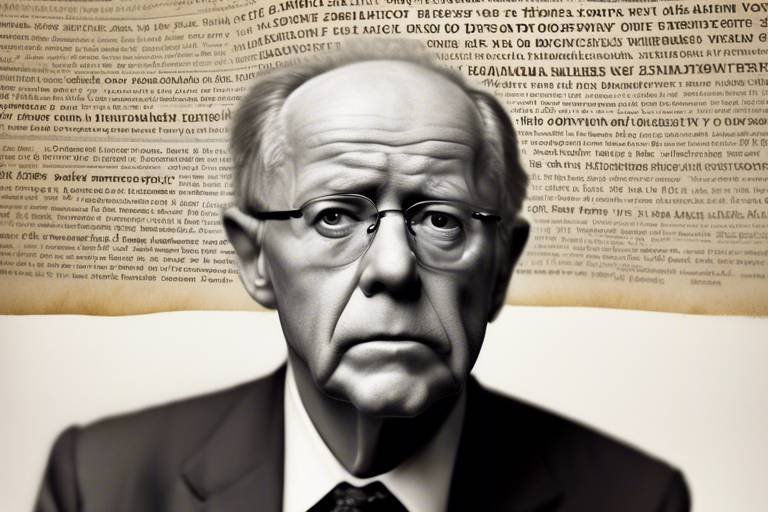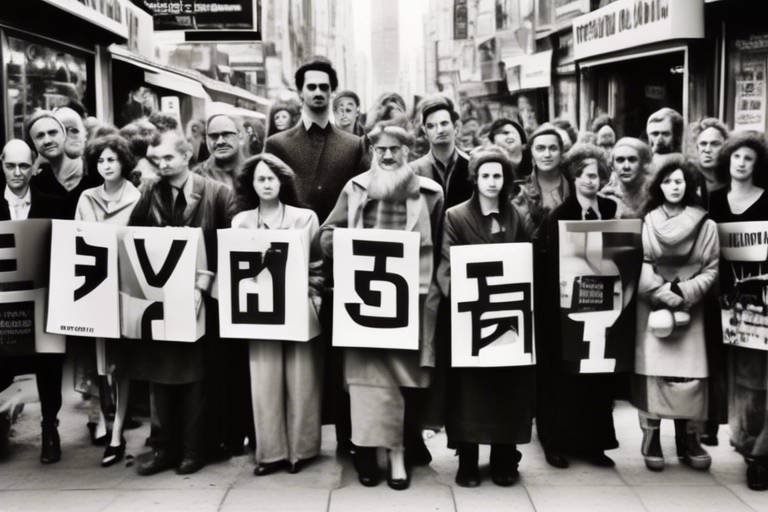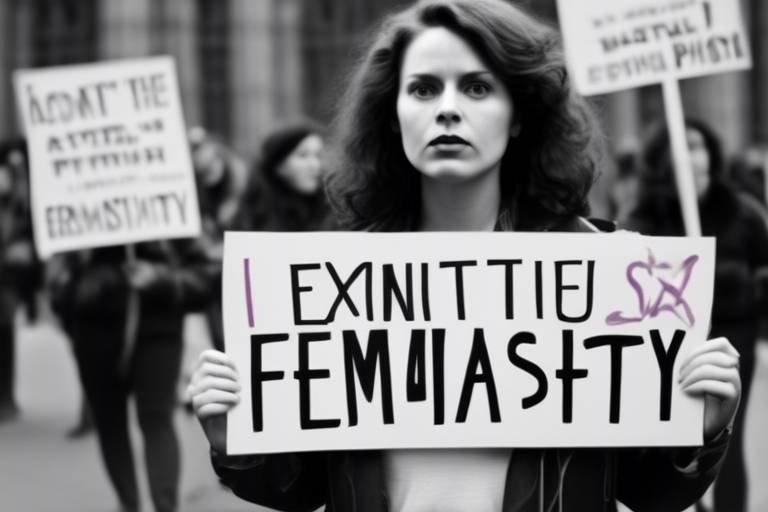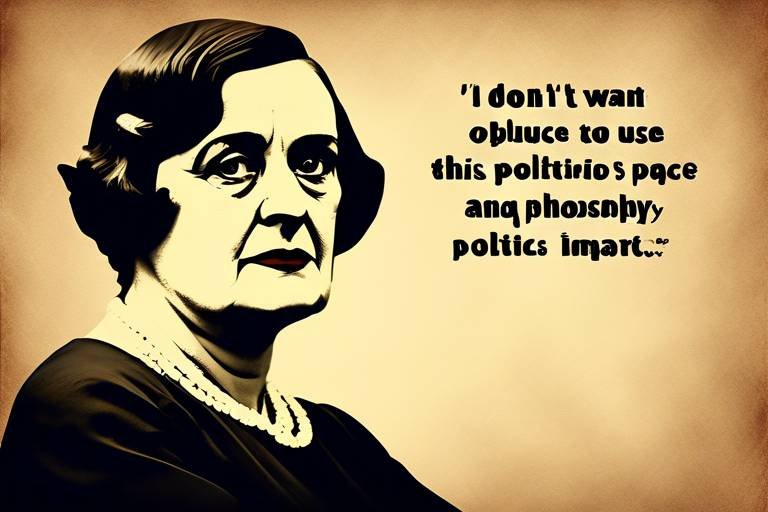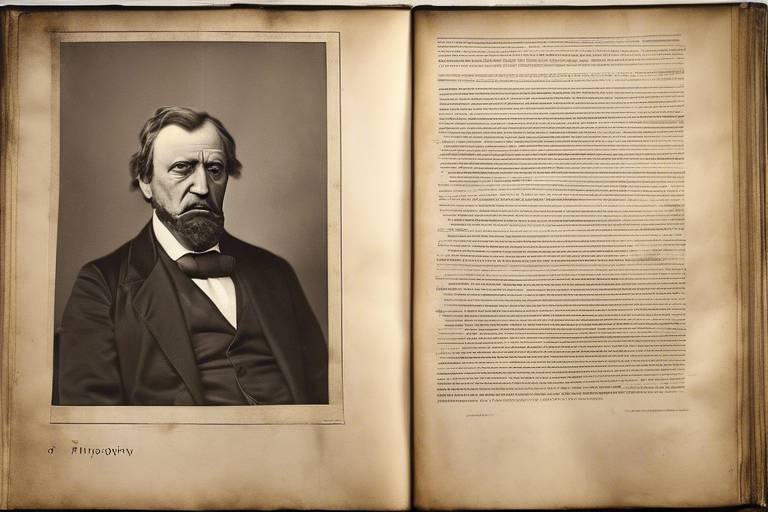The Paradox of Democratic Philosophy
Democratic philosophy is often hailed as the pinnacle of political thought, yet it is rife with complexities and contradictions that can leave even the most seasoned political theorists scratching their heads. At its core, democracy promises liberty, equality, and justice, ideals that resonate deeply with our shared human experience. However, the very principles that make democracy appealing can also lead to unexpected dilemmas and conflicts. How can we champion individual rights while also ensuring the collective good? Is it possible for a system designed to empower the many to also protect the rights of the few? These questions are not mere academic exercises; they are the lifeblood of our political discourse.
One of the most intriguing aspects of democratic philosophy is its inherent paradox. On one hand, democracy seeks to amplify the voices of the populace, advocating for a system where every individual has a say in governance. On the other hand, this very system can lead to the tyranny of the majority, where the rights and needs of minority groups are overlooked or outright ignored. This tension raises a critical question: can democracy truly be equitable if it often favors the majority? The answer may lie in the delicate balance between majoritarianism and pluralism, two concepts that shape the landscape of democratic governance.
Furthermore, the rise of populism in recent years has added another layer of complexity to this paradox. Populist movements often capitalize on the frustrations of the masses, promising to restore power to the people. Yet, this can lead to a dilution of democratic values, as populist leaders may prioritize their agenda over established democratic norms. The challenge, then, becomes how to navigate this shifting terrain while maintaining the integrity of democratic institutions.
As we delve deeper into the nuances of democratic philosophy, we must also consider the roles of accountability and transparency. These elements are crucial in fostering trust between the government and its citizens. Without them, the very foundation of democracy can erode, leading to disillusionment and apathy among the electorate. In a world where information is readily available yet often distorted, ensuring that democratic processes remain open and honest is more important than ever.
In summary, the paradox of democratic philosophy lies in its dual promise of freedom and equality, which can sometimes clash in unexpected ways. As we continue to explore the intricacies of democracy, we must remain vigilant in protecting its core values while adapting to the challenges of our time. This ongoing journey invites us to question, reflect, and engage in meaningful dialogue about the future of democracy and its role in shaping our societies.
- What are the core principles of democratic philosophy? The core principles include liberty, equality, and justice, which serve as the foundation for democratic systems.
- How does individualism impact democracy? Individual rights and freedoms are prioritized, but this can create tension with the collective good.
- What is the difference between majoritarianism and pluralism? Majoritarianism focuses on the majority's preferences, while pluralism emphasizes the importance of diverse voices and minority rights.
- What role does accountability play in democracy? Accountability ensures that government actions are transparent and that leaders are answerable to the public, fostering trust in democratic institutions.
- How is globalization affecting democratic practices? Globalization raises questions about sovereignty, economic inequality, and cultural identity, challenging traditional democratic norms.
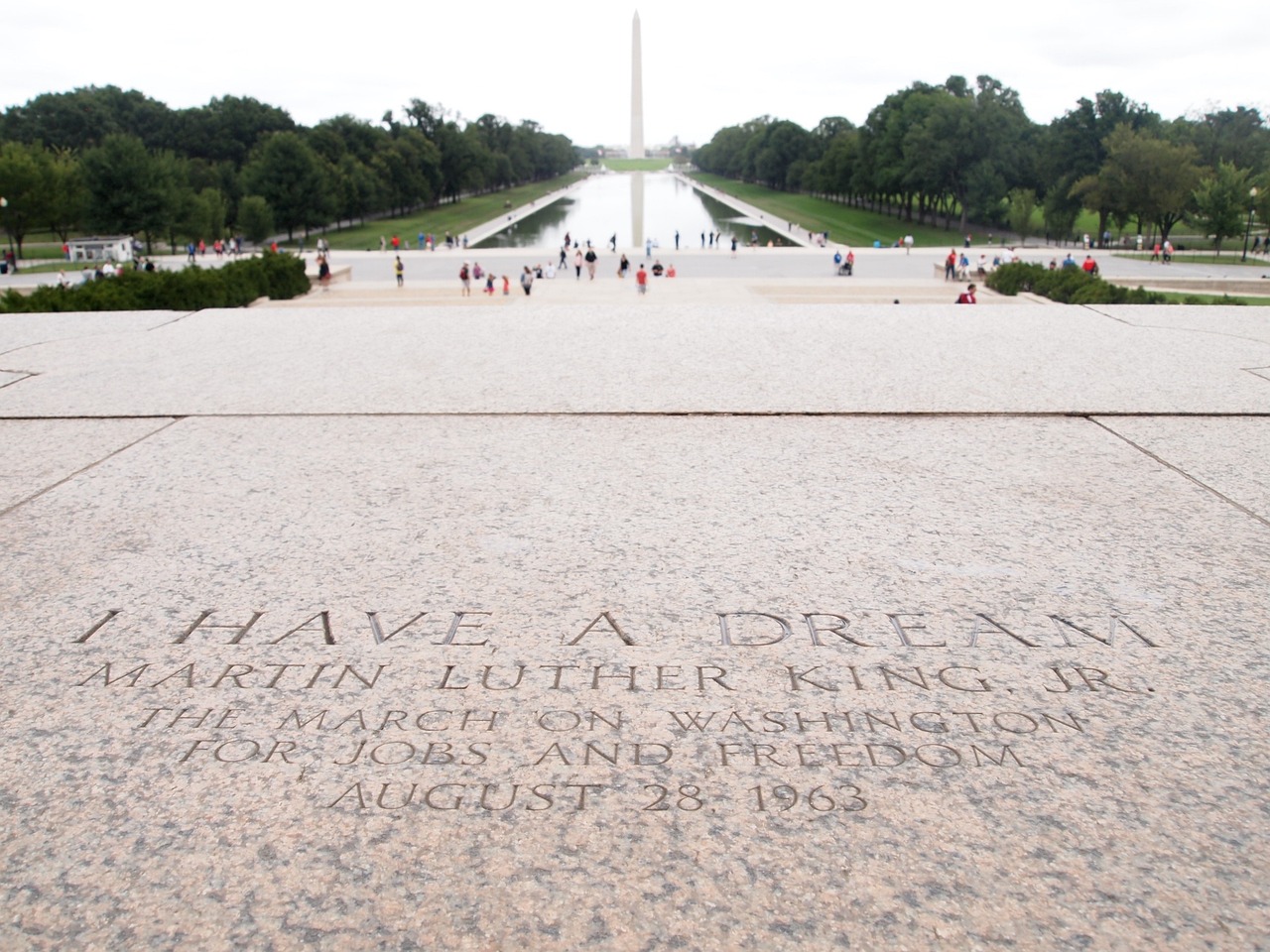
The Foundations of Democratic Philosophy
At the heart of democratic philosophy lies a tapestry of ideals that have evolved over centuries, shaped by the thoughts of great thinkers and the struggles of societies yearning for freedom. The core principles that underpin this philosophy are liberty, equality, and justice. These concepts are not merely abstract ideas; they are the very foundation upon which democratic systems are built, influencing political structures and societal norms around the globe.
To understand the essence of democracy, we must first unpack these foundational principles. Liberty is the bedrock of democratic thought, emphasizing the importance of individual freedoms and the right to self-determination. In a democracy, citizens are not just subjects of the state; they are active participants in shaping their own destinies. This notion of personal freedom is often juxtaposed with the idea of equality, which asserts that every individual, regardless of background or status, deserves equal rights and opportunities. The challenge, however, lies in balancing these two ideals. How can we ensure that one person's freedom does not infringe upon another's rights?
Additionally, the principle of justice plays a pivotal role in democratic philosophy. It serves as a guiding compass for establishing laws and policies that are fair and equitable. Justice demands that the voices of all citizens be heard, particularly those from marginalized communities. This leads us to a fundamental question: Can a democracy truly exist if it fails to uphold justice for all its members?
The interplay of these principles creates a dynamic environment where the ideals of democracy can flourish or falter. For instance, while liberty promotes individual rights, it can sometimes lead to a disregard for the collective good. Conversely, a focus on equality might necessitate restrictions on certain freedoms to ensure that all individuals can enjoy their rights fully. This tension is a hallmark of democratic philosophy, prompting ongoing debates about the best ways to achieve a harmonious balance.
To illustrate these foundational principles further, consider the following table that outlines how each principle interacts with democratic governance:
| Principle | Definition | Impact on Democracy |
|---|---|---|
| Liberty | Freedom to act, speak, or think without hindrance | Empowers citizens to participate actively in governance |
| Equality | State of being equal, especially in status, rights, and opportunities | Ensures fair representation and protection of minority rights |
| Justice | Fair treatment and the administration of the law | Maintains social order and trust in democratic institutions |
As we delve deeper into the complexities of democratic philosophy, it becomes apparent that these foundational ideals are not static; they are continually challenged and redefined by societal changes, cultural shifts, and political movements. The ongoing struggle to uphold liberty, equality, and justice is what keeps democracy alive and vibrant, even amidst turbulence. In essence, the foundations of democratic philosophy serve not only as guiding principles but also as a mirror reflecting the ongoing journey towards a more just and equitable society.
- What is the primary goal of democratic philosophy? The primary goal is to ensure that individuals have the freedom to participate in governance while upholding equality and justice for all.
- How do liberty and equality coexist in a democracy? While both are essential, they require careful balancing to ensure that one does not infringe upon the other.
- Why is justice important in a democratic society? Justice ensures that laws and policies are fair, protecting the rights of all citizens, particularly those who are marginalized.
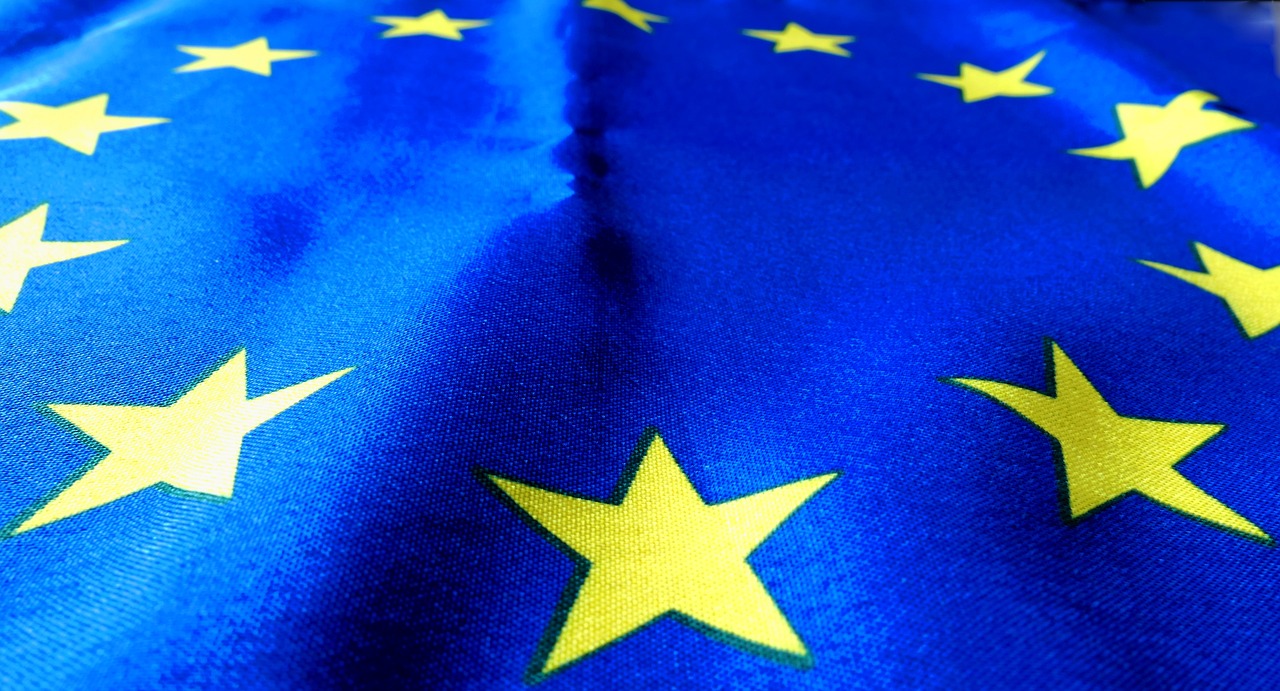
In the vibrant tapestry of democratic societies, individualism plays a pivotal role. It's the thread that weaves together personal freedoms, rights, and the very essence of what it means to be part of a democratic system. But what does individualism truly mean in the context of democracy? At its core, individualism champions the idea that each person is unique, with their own set of beliefs, values, and aspirations. This notion not only celebrates diversity but also empowers citizens to express themselves freely, contributing to a rich, pluralistic society.
However, the beauty of individualism comes with its own set of challenges. On one hand, it fosters a sense of autonomy and self-determination, allowing individuals to pursue their goals and dreams without undue interference. On the other hand, it can create a tension between personal desires and the collective good. For instance, when individual rights are prioritized over community welfare, it can lead to a fragmentation of society, where people become more concerned about their own interests rather than the common good. This paradox raises a crucial question: how do we find the balance between honoring individual rights and ensuring the well-being of the community?
To explore this balance, we must consider the mechanisms through which democratic systems facilitate participation and representation. Collective decision-making is a fundamental aspect of democracy, where the voices of the many come together to shape policies that affect everyone. This process is not merely about casting votes; it involves active engagement in dialogues, debates, and discussions that reflect the diverse perspectives within a society. Ultimately, the strength of democracy lies in its ability to harmonize individual voices into a cohesive narrative that respects both personal freedoms and collective responsibilities.
In democratic societies, the process of collective decision-making is crucial for ensuring that all voices are heard. This participation can take various forms, from voting in elections to engaging in community forums. The importance of representation cannot be overstated; when individuals feel that their opinions matter, they are more likely to engage in the democratic process. This engagement fosters a sense of ownership and responsibility towards the community. However, it also raises the question: how do we ensure that minority voices are not drowned out by the majority?
The tension between majoritarianism and pluralism is a defining feature of democratic governance. Majoritarianism, which prioritizes the will of the majority, can sometimes lead to the marginalization of minority groups. Conversely, pluralism advocates for the recognition and inclusion of diverse perspectives, ensuring that all individuals have a stake in the democratic process. This balance is crucial for maintaining a healthy democracy, as it allows for a rich dialogue that reflects the complexities of society.
In recent years, the rise of populism has posed significant challenges to traditional democratic values. Populist movements often exploit individualism by appealing directly to the desires and frustrations of the populace, sometimes at the expense of established democratic norms. This can lead to polarization and division within society, as individuals become more entrenched in their positions. The danger here is that while populism may resonate with the individual, it can undermine the very foundations of democracy by disregarding the importance of dialogue and compromise.
Ultimately, the role of individualism in democracy is a double-edged sword. It empowers citizens, allowing them to express their unique identities and perspectives. Yet, it also presents challenges that require careful navigation. By fostering a culture of participation, representation, and respect for diverse viewpoints, democratic societies can harness the power of individualism while safeguarding the collective good.
- What is individualism in a democratic context? Individualism emphasizes the importance of personal freedoms and rights, allowing individuals to express their unique identities within a democratic framework.
- How does individualism impact collective decision-making? While individualism promotes self-expression, it can create tension between personal desires and community welfare, necessitating a balance between the two.
- What are the risks of prioritizing individualism over community? Overemphasis on individual rights can lead to societal fragmentation and the neglect of collective responsibilities, undermining social cohesion.

Collective Decision-Making
In the realm of democracy, stands as a cornerstone, embodying the essence of how societies govern themselves. Imagine a bustling marketplace where every voice matters, and each opinion shapes the fabric of community life. This is the heart of democracy—where decisions aren’t just handed down from on high but are forged through the collective will of the people. The beauty of this process lies in its inclusivity, allowing individuals to come together, share their perspectives, and contribute to the greater good.
However, while the ideal of collective decision-making sounds harmonious, it often resembles a complex symphony where not all instruments are in tune. The challenge lies in ensuring that every voice is not only heard but also valued. In many democratic systems, mechanisms like town hall meetings, referendums, and deliberative polls are employed to facilitate this engagement. These platforms allow citizens to debate, discuss, and ultimately decide on issues that affect their lives. Yet, the effectiveness of these methods can vary widely, often influenced by factors such as accessibility, education, and social equity.
Moreover, the dynamics of collective decision-making can lead to fascinating outcomes. For instance, when a community faces a local issue—be it environmental concerns or public safety—residents might gather to brainstorm solutions. This collaborative effort not only empowers individuals but also fosters a sense of belonging and responsibility. Yet, it’s crucial to recognize that this process can be fraught with tension. The question arises: how do we balance the diverse opinions of many with the need for decisive action? This is where the principles of participation and representation come into play.
In a well-functioning democracy, participation is not merely a checkbox to tick; it’s an ongoing dialogue. Citizens must feel that their contributions matter. This is where technology has made a significant impact, allowing for more accessible and widespread participation through online platforms. However, it also raises concerns about disinformation and echo chambers, where individuals may only engage with like-minded views, potentially stifling meaningful debate. Thus, while technology can enhance collective decision-making, it also poses new challenges that democracies must navigate.
Another critical aspect of collective decision-making is the need for effective representation. In a diverse society, it’s vital that all groups—especially marginalized communities—have a seat at the table. This can be achieved through various means, including proportional representation in legislative bodies, ensuring that decision-making bodies reflect the diversity of the population. When representation is skewed, the collective decisions made may not truly reflect the will of the people, leading to disenfranchisement and disillusionment.
Ultimately, the process of collective decision-making in a democracy is a balancing act. It requires constant vigilance to ensure that all voices are heard, that the mechanisms for participation are robust, and that the outcomes are equitable. By embracing the complexities of this process, societies can work towards decisions that not only serve the majority but also honor the rights and needs of minorities. It’s a dynamic interplay of voices, ideas, and values, where the goal is not just to make decisions but to make them together, as a unified community.
- What is collective decision-making? Collective decision-making refers to the process by which a group of people come together to make decisions that affect their community or organization.
- Why is participation important in a democracy? Participation ensures that diverse voices are heard, leading to more representative and equitable decision-making.
- How can technology enhance collective decision-making? Technology can facilitate broader participation through online platforms, enabling more people to engage in discussions and decision-making processes.
- What challenges does collective decision-making face? Challenges include ensuring all voices are heard, combating disinformation, and maintaining effective representation of diverse groups.
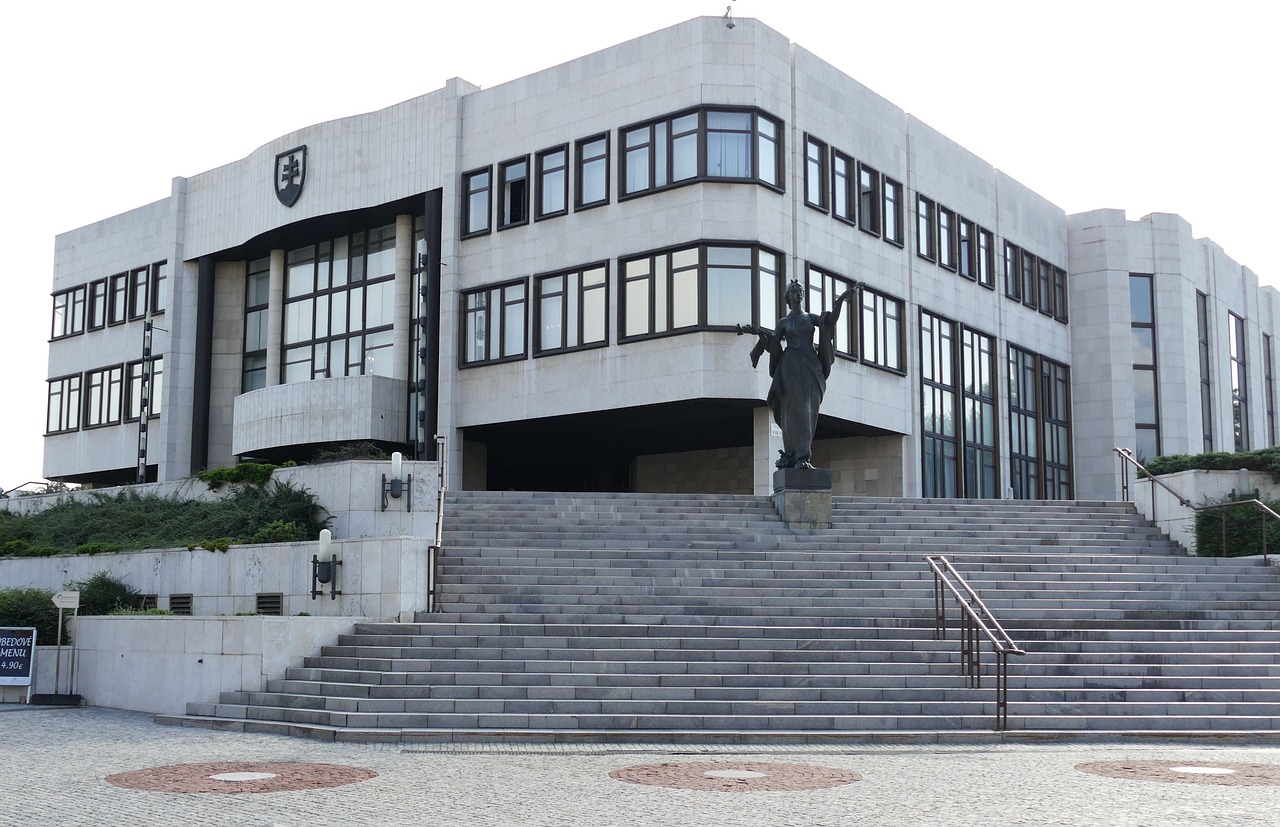
Majoritarianism vs. Pluralism
In the intricate tapestry of democratic governance, the concepts of majoritarianism and pluralism often find themselves at odds, each representing a distinct approach to decision-making and representation. Majoritarianism, at its core, champions the idea that the majority's will should prevail in political decisions. This principle is straightforward: if more than half of the electorate supports a particular policy or candidate, that choice becomes the law of the land. While this approach can lead to decisive governance and the swift implementation of policies, it raises significant concerns about the rights of minorities.
On the flip side, pluralism emphasizes the importance of diversity and the inclusion of multiple voices in the political arena. It recognizes that society is not a monolith; rather, it is a mosaic of different cultures, beliefs, and interests. Pluralism advocates for a system where various groups can coexist, ensuring that even the least represented voices have a say in the democratic process. This approach is essential in preventing the tyranny of the majority, where the dominant group can impose its will on everyone else, often leading to social unrest and disenfranchisement.
So, how do these two concepts interact within a democratic framework? The balance between majoritarianism and pluralism is crucial. A purely majoritarian system might result in policies that disregard minority rights, creating an environment where dissent is stifled and social cohesion is threatened. Conversely, an overly pluralistic system could lead to gridlock, where no decisions are made because too many voices are vying for attention. Therefore, the challenge lies in finding a harmonious balance that respects the majority's choice while safeguarding minority rights.
To illustrate this balance, consider the following table that outlines the key differences between majoritarianism and pluralism:
| Aspect | Majoritarianism | Pluralism |
|---|---|---|
| Definition | Rule by the majority | Recognition of diverse groups |
| Focus | Efficiency in decision-making | Inclusivity and representation |
| Outcome | Potential neglect of minority rights | Protection of minority interests |
| Example | Referendums | Coalition governments |
In practice, democracies often incorporate elements of both majoritarianism and pluralism to create a more balanced political environment. For instance, electoral systems may allow for majority rule in legislative decisions while simultaneously ensuring that minority parties have a voice in the parliament. This hybrid approach not only fosters a sense of ownership among diverse groups but also encourages civic engagement, as individuals recognize that their views can contribute to the broader political discourse.
Ultimately, the tension between majoritarianism and pluralism highlights a fundamental question: how can democracies ensure that the voices of all citizens are heard while still maintaining effective governance? As societies evolve and become more complex, this question becomes increasingly pertinent. Striking the right balance is essential for the health of democracy, as it determines not only the legitimacy of political institutions but also the overall cohesion of society.
- What is majoritarianism? - Majoritarianism is a political principle where the majority's preferences are prioritized in decision-making processes.
- What does pluralism mean in a democratic context? - Pluralism refers to a system that recognizes and values the diversity of different groups, ensuring that minority voices are included in governance.
- How do majoritarianism and pluralism affect minority rights? - Majoritarianism can sometimes lead to the neglect of minority rights, while pluralism seeks to protect and promote these rights.
- Can a democracy be both majoritarian and pluralistic? - Yes, many democratic systems incorporate elements of both to create a balanced approach that fosters inclusivity while allowing for efficient governance.
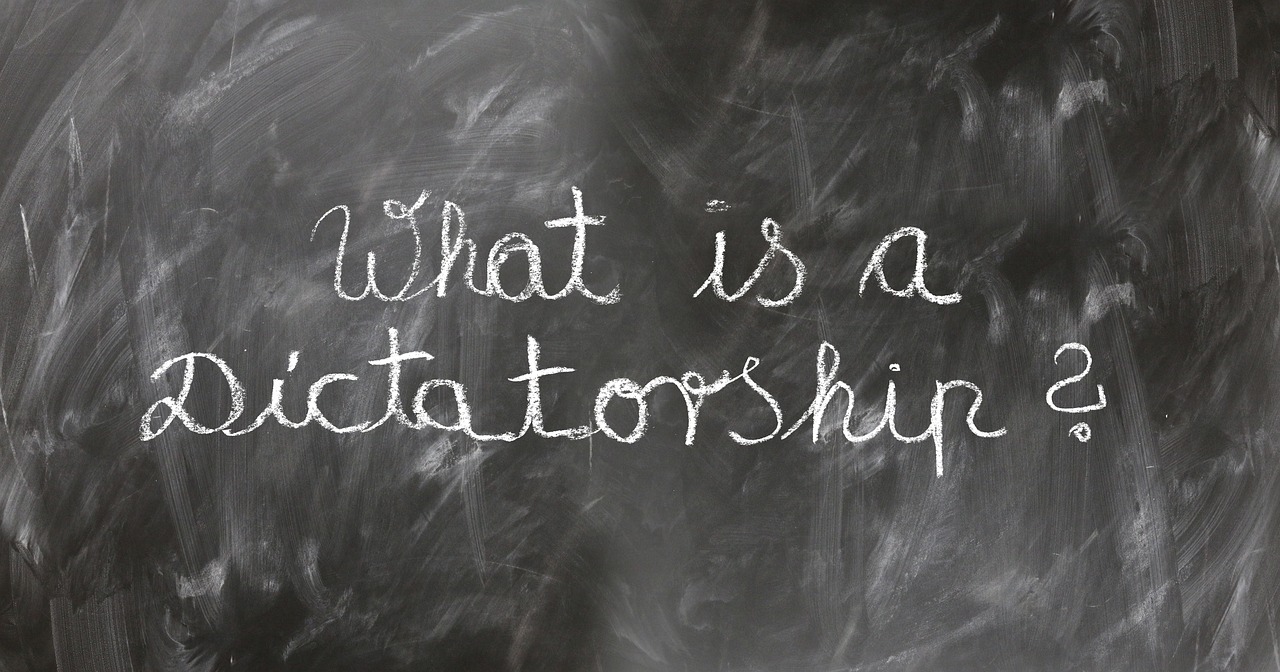
The Dangers of Populism
Populism, with its alluring promises and charismatic leaders, often emerges as a response to the discontent felt by the masses. It paints a picture of a society where the "common people" are pitted against a perceived corrupt elite. However, while it may seem like a refreshing change, the dangers of populism are both profound and far-reaching. One of the most significant risks is the erosion of democratic norms. Populist leaders frequently challenge established institutions, undermining the very frameworks that uphold democracy. This can lead to a concentration of power in the hands of a few, as checks and balances become mere formalities.
Moreover, populism thrives on division, often fostering an "us vs. them" mentality. This divisiveness can fracture societies, creating an environment where compromise becomes nearly impossible. For instance, when populist rhetoric frames certain groups as enemies of the state, it can lead to increased polarization and social unrest. The implications are clear: a society divided is a society weakened, and this weakening can manifest in various forms, such as violence, discrimination, and even civil conflict.
Another critical danger of populism is its propensity to simplify complex issues. Populist leaders often resort to catchy slogans and oversimplified narratives, appealing to emotions rather than reason. This can result in policies that are not only ineffective but also detrimental to the long-term health of a nation. For example, a populist might promise to solve economic woes by implementing protectionist measures, which could ultimately harm the economy by stifling trade and innovation.
Additionally, the rise of populism often leads to a decline in accountability and transparency. Populist leaders may prioritize loyalty over competence, appointing individuals who align with their vision rather than those who are qualified. This can create a culture of nepotism and corruption, as personal connections take precedence over merit. The result is a government that is less responsive to the needs of its citizens and more focused on maintaining power.
In essence, while the allure of populism can be strong, it is crucial to recognize its inherent dangers. The promise of a government that listens to the people can quickly turn into a nightmare of authoritarianism, division, and policy failures. Thus, as citizens, it is our responsibility to remain vigilant, question populist narratives, and advocate for a more inclusive and rational approach to governance. Only then can we hope to safeguard the principles of democracy that are so vital to our society.
- What is populism? Populism is a political approach that seeks to represent the interests of ordinary people, often by contrasting them against a perceived elite or establishment.
- How does populism affect democracy? Populism can undermine democratic norms by concentrating power, fostering division, and promoting oversimplified solutions to complex problems.
- Can populism be beneficial? While it can bring attention to legitimate grievances, the potential dangers often outweigh the benefits, leading to instability and authoritarianism.
- What can be done to counteract the dangers of populism? Promoting transparency, accountability, and inclusive dialogue can help mitigate the risks associated with populist movements.

Accountability and Transparency
In any democratic system, accountability and transparency are the cornerstones that uphold the integrity of governance. But what do these concepts really mean in the context of democracy? At its core, accountability refers to the obligation of public officials to be answerable for their actions and decisions. It’s like a safety net that ensures politicians and government representatives remain responsible to the people they serve. Transparency, on the other hand, is about openness; it involves making information accessible to the public, allowing citizens to see how decisions are made and how resources are allocated.
Imagine a ship sailing through turbulent waters. The captain must not only steer the vessel but also inform the crew about the course and the challenges ahead. Similarly, in a democracy, when leaders are transparent about their actions, it builds trust and fosters a sense of community. People feel more connected and engaged when they know what’s happening behind the scenes. This openness can take many forms, from public meetings to accessible government records, and is essential for nurturing an informed citizenry.
However, the relationship between accountability and transparency is not always straightforward. There are instances where a lack of transparency can lead to a significant erosion of trust. For example, when government decisions are made behind closed doors, it can breed suspicion and cynicism among the populace. Conversely, when transparency is prioritized, it can lead to greater accountability, as citizens become more empowered to question and challenge their leaders. This dynamic is crucial because it reinforces the idea that power ultimately resides with the people.
To illustrate the significance of these concepts, consider the following table that outlines the benefits of accountability and transparency in democratic governance:
| Aspect | Benefits |
|---|---|
| Accountability |
|
| Transparency |
|
Yet, achieving a high level of accountability and transparency is fraught with challenges. In many democracies, bureaucratic red tape, political interests, and even cultural norms can hinder the flow of information. This is where civil society organizations play a pivotal role. They act as watchdogs, advocating for more open governance and holding public officials accountable. Think of them as the eyes and ears of the public, tirelessly working to ensure that democracy functions as it should.
In the age of digital communication, the potential for enhancing transparency is greater than ever. Social media platforms and online portals allow citizens to engage with their government like never before. However, this also comes with its own set of challenges, such as the spread of misinformation and the difficulty of discerning credible sources. Therefore, while technology can be a powerful tool for promoting accountability and transparency, it also requires a discerning public that can navigate the complexities of the information age.
Ultimately, the health of a democracy hinges on how well it can balance accountability and transparency. When citizens are informed and empowered, they are more likely to participate actively in the democratic process. This participation is not just a right but a responsibility that ensures the government remains a true reflection of the people's will. So, as we ponder the future of democracy, let’s remember that a commitment to accountability and transparency is not just beneficial; it’s essential for the survival of democratic ideals.
- Why are accountability and transparency important in a democracy?
They ensure that government officials are answerable to the public, fostering trust and encouraging ethical governance. - How can citizens promote accountability and transparency?
Citizens can engage in public discourse, attend town hall meetings, and support organizations that advocate for open governance. - What role does technology play in enhancing transparency?
Technology facilitates access to information and allows for greater public engagement, but it also requires critical evaluation of sources.

The Challenges of Democratic Governance
Democratic governance, while often celebrated as the epitome of political freedom, is not without its significant challenges. These hurdles can undermine the very principles that democracy stands for, creating a paradox where the system designed to empower individuals sometimes restricts their liberties. Among the most pressing challenges are corruption, disinformation, and the erosion of civil liberties, each posing unique threats to the integrity and functionality of democratic systems.
Corruption is perhaps one of the most insidious challenges facing democracies worldwide. It seeps into the fabric of governance, distorting the allocation of resources and undermining public trust. When elected officials prioritize personal gain over the collective good, the very essence of democracy is compromised. In many cases, corruption leads to a vicious cycle where the public loses faith in democratic institutions, leading to lower voter turnout and increased apathy. This can create a fertile ground for authoritarianism to take root, as disillusioned citizens may seek alternative forms of governance that promise stability over chaos.
Another significant challenge is the rise of disinformation, particularly in the age of social media. Information is disseminated at an unprecedented speed, but not all of it is accurate. Misinformation can skew public perception, manipulate electoral outcomes, and polarize communities. As citizens increasingly rely on digital platforms for news, they often encounter echo chambers that reinforce their beliefs rather than challenge them. This phenomenon can lead to a fragmented society where dialogue and compromise become nearly impossible. The question arises: how can democracies safeguard against the tide of false information while still upholding the values of free speech and open discourse?
Moreover, the erosion of civil liberties poses a grave threat to democratic governance. In many instances, governments may implement measures in the name of security that infringe upon individual rights. This can include mass surveillance, restrictions on free assembly, and limitations on the press. When the state prioritizes control over freedom, it risks alienating its citizens and stifling dissent. The balance between ensuring safety and protecting liberties is delicate, and when tipped, it can lead to widespread unrest and a breakdown of trust in governmental institutions.
To better understand these challenges, consider the following table that outlines the major threats to democratic governance:
| Challenge | Description | Impact on Democracy |
|---|---|---|
| Corruption | Misuse of power for personal gain by public officials | Undermines trust and leads to apathy |
| Disinformation | Spread of false information, especially via social media | Polarizes society and skews public perception |
| Erosion of Civil Liberties | Restrictions on individual freedoms in the name of security | Alienates citizens and stifles dissent |
In light of these challenges, it is crucial for democratic societies to remain vigilant and proactive. Citizens must engage in the political process, hold their leaders accountable, and advocate for transparency. Strengthening educational initiatives that promote media literacy can also empower individuals to discern fact from fiction, fostering a more informed electorate. Ultimately, the health of democracy hinges on the active participation of its citizens and their commitment to uphold the principles of liberty, equality, and justice.
As we navigate these tumultuous waters, one might wonder: can democracy not only survive but thrive in the face of such challenges? The answer lies in our collective ability to adapt, to innovate, and to remember that democracy is not merely a system of governance but a living, breathing entity that requires the nurturing of its citizens to flourish.
- What are the main challenges facing democratic governance today? The main challenges include corruption, disinformation, and the erosion of civil liberties.
- How does corruption affect democracy? Corruption undermines trust in government, leading to voter apathy and the potential rise of authoritarianism.
- What role does disinformation play in democratic societies? Disinformation can polarize communities and manipulate public perception, creating divisions that hinder constructive dialogue.
- How can citizens combat the erosion of civil liberties? Citizens can engage in advocacy, promote transparency, and participate actively in the political process to safeguard their rights.
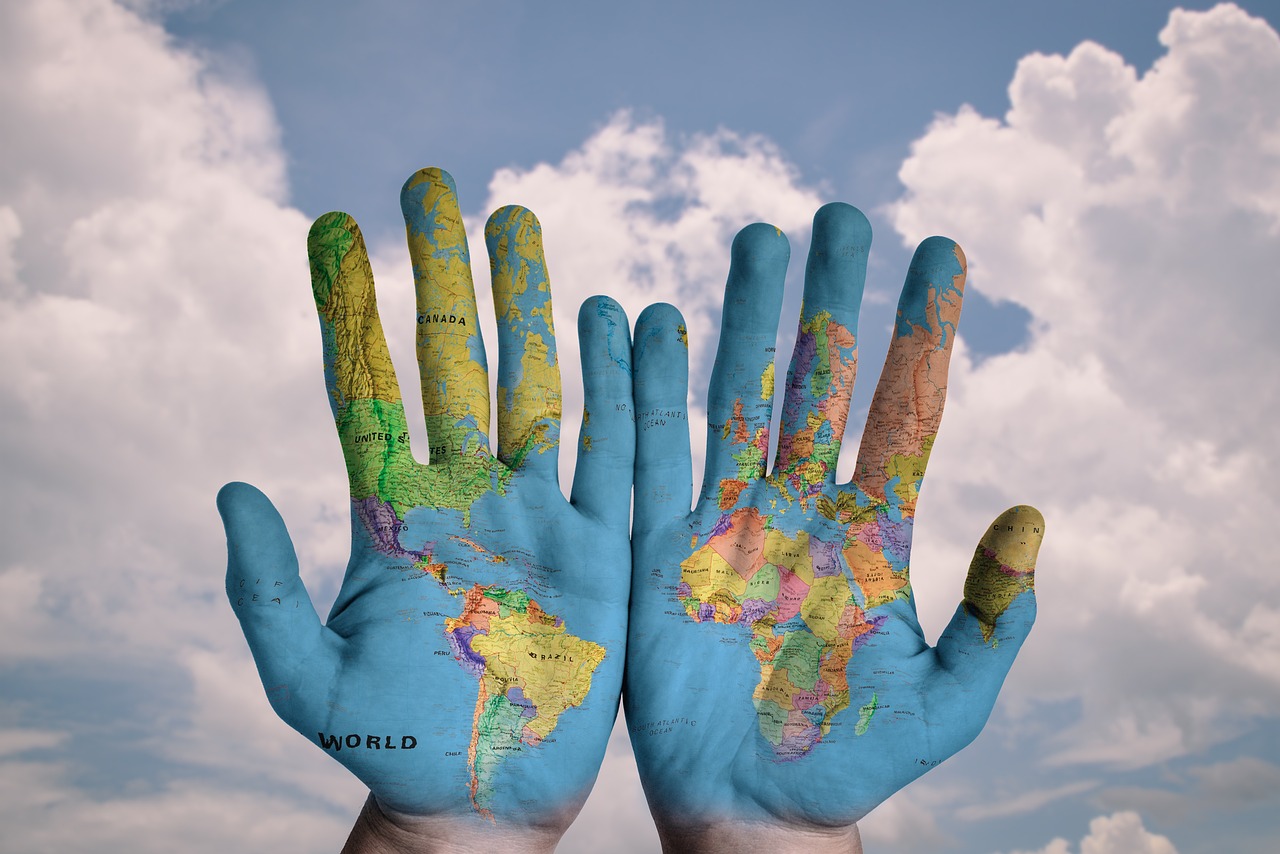
Globalization and Democracy
Globalization has emerged as a double-edged sword in the realm of democracy. On one hand, it offers unprecedented opportunities for cultural exchange, economic growth, and political dialogue across borders. On the other hand, it poses significant challenges that can undermine democratic principles. As nations become more interconnected, the influence of global markets and international organizations can overshadow local governance, raising critical questions about sovereignty and the ability of democratically elected leaders to respond to the needs of their constituents.
One of the most pressing issues is the rising economic inequality that often accompanies globalization. While some individuals and corporations thrive in a global marketplace, many others are left behind, leading to a widening gap between the rich and the poor. This disparity can foster disillusionment with democratic institutions, as citizens may feel that their voices are not heard in a system that seems to favor the wealthy elite. In fact, a recent study revealed that:
| Year | Global Wealth Distribution | Democratic Satisfaction Rate |
|---|---|---|
| 2000 | 60% of wealth held by 10% | 75% |
| 2010 | 70% of wealth held by 10% | 65% |
| 2020 | 80% of wealth held by 10% | 50% |
This table illustrates a concerning trend: as wealth becomes increasingly concentrated, public satisfaction with democratic processes declines. This phenomenon raises the question: how can democracies effectively address the needs of their citizens in a globalized economy?
Moreover, globalization can lead to cultural homogenization, where local traditions and identities are overshadowed by dominant global narratives. This erosion of cultural identity can create a backlash against democratic values, as people may cling to nationalism as a means of preserving their unique heritage. In this context, the challenge lies in balancing globalization's benefits with the preservation of local customs and democratic integrity.
As we navigate the complexities of globalization, it's crucial to foster a dialogue that emphasizes inclusive governance. This means ensuring that all voices, particularly those from marginalized communities, are represented in the decision-making processes that shape both local and global policies. By promoting civic engagement and participation, democracies can counteract the negative effects of globalization and empower citizens to take an active role in their governance.
In conclusion, while globalization presents numerous challenges to democratic governance, it also offers opportunities for innovation and collaboration. The key lies in finding a harmonious balance that allows democracies to thrive in an interconnected world. As we move forward, it is essential to remain vigilant and adaptable, ensuring that democratic values are not only preserved but also strengthened in the face of global change.
- How does globalization impact local economies?
Globalization can lead to increased competition, which can benefit consumers through lower prices but may also harm local businesses unable to compete with larger, multinational corporations.
- Can globalization enhance democratic values?
Yes, globalization can promote democratic values by facilitating the exchange of ideas, fostering international cooperation, and encouraging civic engagement across borders.
- What role do international organizations play in democracy?
International organizations can support democratic governance through monitoring elections, providing technical assistance, and promoting human rights, although their influence can also lead to tensions regarding national sovereignty.

The Future of Democracy
The future of democracy is a topic that stirs both hope and concern. As we look ahead, it’s clear that the landscape of democratic governance is evolving rapidly, influenced by a myriad of factors that challenge traditional norms and practices. One of the most pressing issues is the rise of technology and how it shapes public discourse. Social media platforms, while providing a voice to the voiceless, also serve as breeding grounds for misinformation and polarization. How do we strike a balance between freedom of expression and the need for accurate information? This is a question that will define the future of democratic engagement.
Moreover, the impact of globalization cannot be overlooked. As nations become more interconnected, the challenges that come with it—such as economic inequality and cultural homogenization—pose significant threats to democratic ideals. Countries are grappling with the tension between maintaining national sovereignty and participating in a global economy. This duality raises questions about how governments can effectively represent their citizens while navigating an increasingly complex international landscape.
Another critical aspect to consider is the emergence of new political movements. Many people are disillusioned with traditional political parties, feeling that they no longer represent their interests. This has led to the rise of grassroots movements and independent candidates, which can invigorate democracy by bringing fresh perspectives. However, it also risks fragmenting the political landscape, making it more challenging to achieve consensus on key issues. How can we ensure that these new voices contribute positively to the democratic process rather than exacerbate divisions?
As we ponder the future, we must also think about the role of education in sustaining democracy. A well-informed electorate is crucial for a healthy democratic society. Educational institutions must prioritize teaching critical thinking skills and media literacy to equip citizens with the tools necessary to navigate the complex information landscape. When individuals can discern fact from fiction, they are better positioned to engage in meaningful political discourse.
Finally, the question of environmental sustainability looms large. Climate change poses existential threats that require collective action across borders. Democratic systems must adapt to address these challenges effectively, fostering cooperation rather than competition among nations. The future of democracy may well depend on our ability to unite in the face of global crises, prioritizing the collective good over individual interests.
In summary, the future of democracy is not predetermined; it is a canvas that we collectively paint. The choices we make today regarding technology, globalization, political representation, education, and environmental sustainability will shape the democratic landscape for generations to come. As we navigate these complexities, one thing remains clear: the principles of democracy—liberty, equality, and justice—must be at the forefront of our collective consciousness.
- What are the main challenges facing democracy today? The main challenges include disinformation, corruption, economic inequality, and the rise of authoritarianism.
- How does globalization affect democratic governance? Globalization can undermine national sovereignty and create economic disparities, complicating governance and representation.
- What role does technology play in the future of democracy? Technology can enhance engagement but also poses risks of misinformation and polarization, necessitating a balanced approach.
- How can education support democracy? By promoting critical thinking and media literacy, education equips citizens to engage thoughtfully in political discourse.
- What is the importance of environmental sustainability in democracy? Addressing climate change requires collective action, which can unify democratic nations around common goals.
Frequently Asked Questions
- What are the core principles of democratic philosophy?
The core principles of democratic philosophy include liberty, equality, and justice. These ideals not only shape political systems but also influence societal norms, ensuring that individuals have the freedom to express themselves while being treated equally under the law.
- How does individualism play a role in democracy?
Individualism is crucial in democratic societies as it prioritizes personal rights and freedoms. However, this can create a tension between the collective good and personal autonomy, making it essential for democracies to find a balance that respects both individual rights and community needs.
- What is collective decision-making in a democracy?
Collective decision-making is the process through which citizens participate in shaping policies that affect their lives. It emphasizes the importance of participation and representation, allowing diverse voices to be heard and considered in the governance process.
- How do majoritarianism and pluralism impact democracy?
Majoritarianism focuses on the will of the majority, while pluralism advocates for the representation of diverse groups within society. Both concepts are essential in democratic governance, as they help ensure that minority rights are protected while also reflecting the majority's preferences.
- What are the dangers of populism in democratic contexts?
Populism can pose significant challenges to traditional democratic values and institutions, often leading to polarization and division. It tends to simplify complex issues and can undermine the legitimacy of established democratic processes, creating a more fragmented political landscape.
- Why are accountability and transparency important in democracy?
Accountability and transparency are vital for fostering trust and legitimacy in governance. They ensure that elected officials are held responsible for their actions and that citizens have access to information, enabling informed participation in the democratic process.
- What challenges do democracies face today?
Democracies today face various challenges, including corruption, disinformation, and the erosion of civil liberties. These issues can significantly impact democratic ideals and the overall health of democratic systems, requiring constant vigilance and adaptation.
- How does globalization affect democracy?
Globalization impacts democratic practices by raising questions about sovereignty, economic inequality, and cultural identity. As the world becomes more interconnected, democracies must navigate these challenges to maintain their principles and effectively represent their citizens.
- What does the future hold for democracy?
The future of democracy is uncertain, with emerging trends and potential threats on the horizon. Democracies may need to adapt to changing environments and address new challenges to sustain their core principles and effectively serve their populations.

